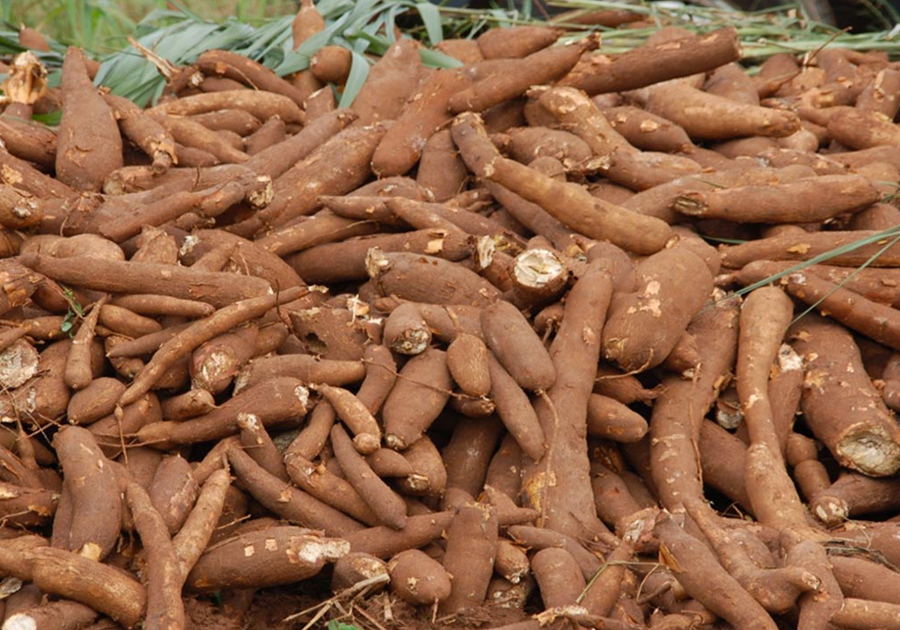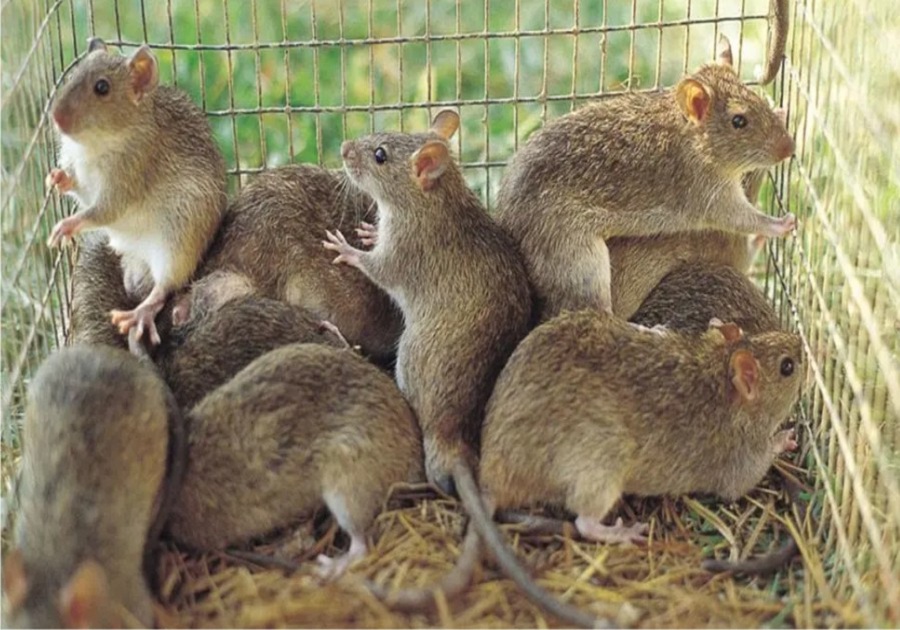


Briceol Integrated Agro Allied Services is fully committed to the agricultural sector of Nigeria. Agriculture remains the stronghold of the generality of Nigerians though largely at the subsistence level. We believe that agriculture is the future of the economy and we aim to help boost Nigeria's agriculture potential in line with the Government’s Agricultural Transformation Agenda. Our business activities include oil palm cultivation, poultry, fishery, snailry, grasscutter, piggery, dairy, rice farming, oilseed crushing, edible oils refining, specialty fats, biodiesel and fertiliser manufacturing, etc. At the core of Briceol strategy is an integrated agribusiness model that encompasses the entire value chain of the agricultural commodity business, from cultivation, processing, merchandising to manufacturing of a wide range of agricultural products.

Cassava is a nutty-flavored, starchy root vegetable or tuber. Native to South America, it's a major source of calories and carbs for people in many countries. Nigeria, Thailand, and Indonesia are the top cassava-producing countries in the world

Nigeria is a nation with various factor endowments, but yet there is still the threat of hunger, extreme poverty and the need to combat this menace calls for urgent attention. Therefore, Briceol Integrated Limited focuses on the agro-allied services and the possibility of reducing the poverty level of the Nigerian populace and enhance a better economic condition.

Poultry farming is the form of animal husbandry which raises commercially or domestically birds for meat, eggs, and feathers. Chickens, ducks, turkeys, and geese are of primary commercial importance, while guinea fowl and squabs are chiefly of local interest. Based on the number of animals, poultry represent the largest domestic animal stock in the world, and poultry meat was the fastest growing component of global meat production in the early 21st century. Poultry meat and eggs provide affordable high-quality protein. Poultry farming, especially on a small scale, is renewable and efficient and can provide a ready source of income and nutrition.

Our Agro-Allied fishery deals with the production of fishes and other aquatic animals. We are able to rear fishes in specially constructed ponds and other enclosures; in coastal waters, lagoons and reservoirs until they reach table size.

Heliciculture, commonly known as snail farming, is the process of raising edible land snails, primarily for human consumption or cosmetic use. The meat and snail eggs can be consumed as escargot and as a type of caviar respectively. Mucus, commonly known as snail slime, has medical properties and is used in cosmetics.

Grasscutters (Thryonomys swinderianus), also called Cane Rats and Grass Cutter in English-speaking West African countries, Agouti in French-speaking West African countries and hedgehogs in Central Africa, are rodents that are widely found in wet or grasslands areas in Africa. Though these animals are widely hunted in Africa, they can be domesticated like other micro-livestock animals such as rabbits. The best way to breed grasscutters is by raising them under an intensive system, i.e. keeping them in cages or pens inside a very safe shed. It is very important to choose a very good location as this is highly critical for successful grasscutter rearing.

Pig farming or hog farming is the raising and breeding of domestic pigs as livestock, and is a branch of animal husbandry. Pigs are farmed principally for food (e.g. pork, bacon, gammon) and skins. Pigs are amenable to many different styles of farming: intensive commercial units, commercial free range enterprises, or extensive farming (being allowed to wander around a village, town or city, or tethered in a simple shelter or kept in a pen outside the owner's house).

A dairy is a business enterprise established for the harvesting or processing (or both) of animal milk – mostly from cows or buffaloes, but also from goats, sheep, horses, or camels – for human consumption. A dairy is typically located on a dedicated dairy farm or in a section of a multi-purpose farm (mixed farm) that is concerned with the harvesting of milk.

Rice farming is one of the most lucrative types of farming in Nigeria, although rice is classified as a cash crop for farmers, it is one of the most consumed staple foods and important cereal in Nigeria. Almost 7 million tonnes of rice are consumed per year in the country. Rice alongside maize is one of the most consumed staple foods in Nigeria. The country’s rice consumption per capita is currently pegged at 32kg, which is a little lower than the global rice consumption per capita at 53.9kg.